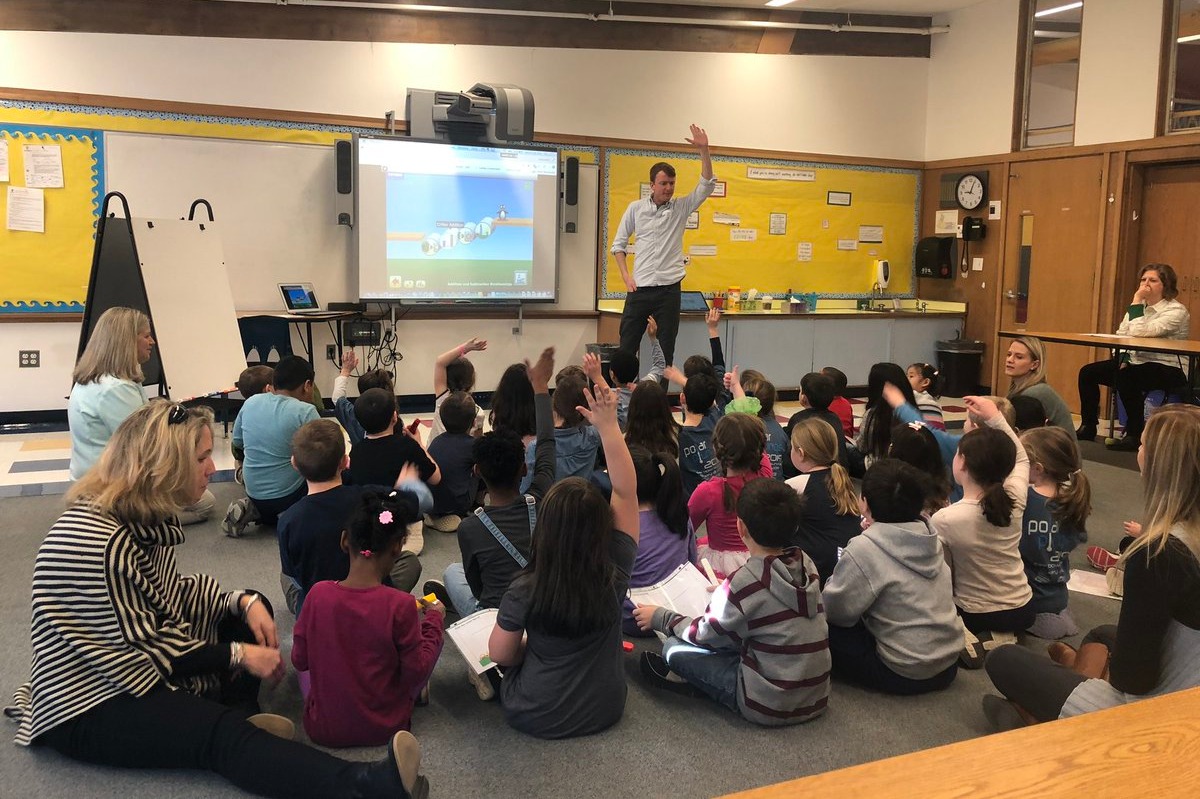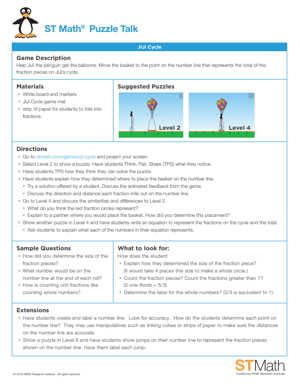
There are many ways educators are bringing mathematical discourse into the classroom. You may have heard these lessons called number talks, math talks, and puzzle talks, but they have several elements in common.
These goals align with what the standards for mathematical practices ask for academic discourse: construct viable arguments and critique the reasoning of others. Many math curriculums and tools are incorporating math discourse directly into their programs to address these standards for mathematical practices.
In this blog, we’ll focus on puzzle talks. The use of ST Math puzzles to lead a whole group or small group short conversation are what we call puzzle talks. Similar to number talks or math talks, the goal is to get students to communicate and deepen their understanding of mathematics.

Puzzle talks allow educators to leverage the power of the visual models and manipulatives inherent in ST Math and use language to support the learning experience.
No matter what name you call them by, many educators see the benefits after incorporating these mini lessons into their math class structure, including:
Puzzle talks begin with an intriguing visual puzzle. All students may know is that the goal is to get JiJi (the penguin) across the screen.
The first task then is to determine what is going on. Ask students, "What do you notice?"
The low barrier to entry on these first questions allows all student the opportunity to engage in the conversation and build confidence.
First graders doing a puzzle talk today. Reading the clues on the screen like a detective then sharing our thoughts and ideas. This was a great opportunity to use our measurement vocabulary as well. @STMath @covemathcoach pic.twitter.com/lLnAJIFHJF
— Heather Gerrard (@fabinfirst_cove) April 1, 2019
Teachers who use ST Math already may notice a striking similarity to the Facilitating Questions guide!
This free puzzle talk lesson is available to all teachers!
If your school has ST Math, you have access to recommended puzzle talks for Kindergarten through middle school, and a lesson planner to help you create your own puzzle talks.
Even if you don’t have ST Math, you can use the puzzle talk below, ideal for third or fourth grade, along with our free JiJi Cycle game in your classroom!
When an ST Math puzzle talk comes to life with hands-on tools and Kindergarteners! @STMath @Cvillebeavers pic.twitter.com/6y9EepY18r
— Kate Twombly (@cvillelitcoach) February 13, 2019

Puzzle talks are just one way ST Math is supporting teachers in bringing math discourse into the classroom. Keep an eye out for more information coming soon about additional resources and built-in features to get students communicating and deepening their understanding of mathematics!

Calli Wright was the Marketing Manager at MIND Research Institute. She loves playing and designing board games, which she often talks about on twitter @CalliWrights.
Comment